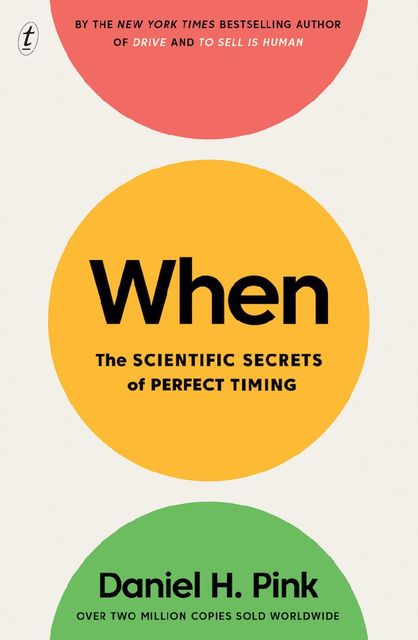- Дина Салаховаje citiralaпре 3 годинеTiming, we believe, is an art.
- Дина Салаховаje citiralaпре 3 годинеOur lives present a never-ending stream of “when” decisions
- masoldadje citiraoпре 5 годинаFirst, our cognitive abilities do not remain static over the course of a day. During the sixteen or so hours we’re awake, they change—often in a regular, foreseeable manner. We are smarter, faster, dimmer, slower, more creative, and less creative in some parts of the day than others. Second, these daily fluctuations are more extreme than we realize. “[T]he performance change between the daily high point and the daily low point can be equivalent to the effect on performance of drinking the legal limit of alcohol,” according to Russell Foster, a neuroscientist and chronobiologist at the University of Oxford.15 Other research has shown that time-of-day effects can explain 20 percent of the variance in human performance on cognitive undertakings.16 Third, how we do depends on what we’re doing. “Perhaps the main conclusion to be drawn from studies on the effects of time of day on performance,” says British psychologist Simon Folkard, “is that the best time to perform a particular task depends on the nature of that task.”
- masoldadje citiraoпре 5 годинаWith the DRM, participants reconstruct the previous day—chronicling everything they did and how they felt while doing it.
- masoldadje citiraoпре 5 годинаDay Reconstruction Method (DRM),
- masoldadje citiraoпре 5 годинаepitome of Boorstin’s cyclical monotony.
- Primo Rizkyje citiraoпре 5 годинаWhen we wake up, our body temperature slowly rises. That rising temperature gradually boosts our energy level and alertness—and that, in turn, enhances our executive functioning, our ability to concentrate, and our powers of deduction. For most of us, those sharp-minded analytic capacities peak in the late morning or around noon.
- Primo Rizkyje citiraoпре 5 годинаpositive affect climbed in the morning hours until it reached an “optimal emotional point” around midday. Then their good mood quickly plummeted and stayed low throughout the afternoon only to rise again in the early evening.
- Primo Rizkyje citiraoпре 6 годинаTime isn’t the main thing. It’s the only thing.
—MILES DAVIS - b0078167061je citiraoпре 6 година“[A]n important takeaway from our study for corporate executives is that communications with investors, and probably other critical managerial decisions and negotiations, should be conducted earlier in the day.”11
fb2epub
Prevucite i otpustite datoteke
(ne više od 5 odjednom)


